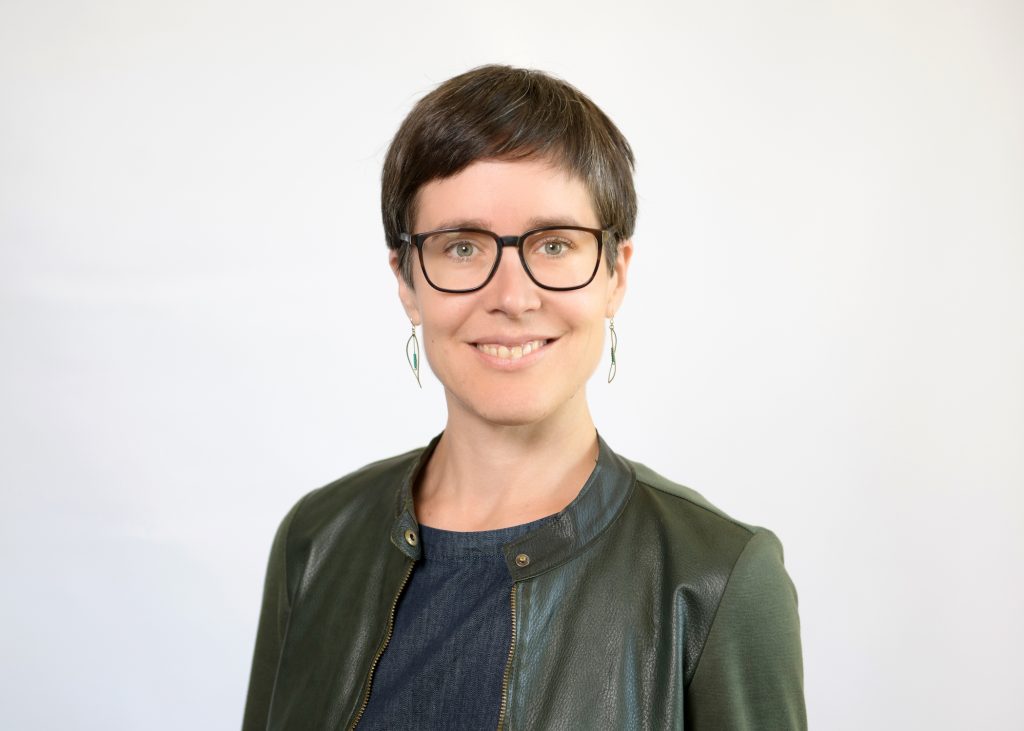Prof. Dr. Anne Friedrichs
Research associate, CRC Principal Investigator of the project: From "Displaced Persons" to "Refugee"
Anne Friedrichs joined the Leibniz Institute of European History in 2018; since 2020 she has been an associated researcher at the Centre Marc Bloch. In 2021 she joined the Collaborative Research Center (SFB 1482) on “Human Categorization” as Principal Investigator of a project on “Legal-Bureaucratic Categorization in the Postwar Period. From ‘Displaced Persons’ to ‘Refugee'”. From 2023 to 2027 she will be Visiting Professor of Modern and Contemporary History at the Ludwig Maximilian University of Munich.
Anne Friedrichs studied cultural studies (Kulturwissenschaften) and history at Leipzig University as well as political science and urban and regional planning at the Université Lumière Lyon 2 and the Institut d’études politiques Lyon. After fellowships at the University of Cambridge and the Institut d’histoire moderne et contemporaine in Paris, she completed her PhD in 2010 with a dissertation on academic historiography in Great Britain and France and its relationship to changes of these two imperial nation-states between 1919 and 1968. This book was awarded the Johannes Zilkens-Promotionspreis by the German Academic Scholarship Foundation in 2012. After working in the Presidential Committee at the Leuphana University of Lüneburg (2010–2015) and completing research fellowships at the German Historical Institute in Warsaw and Paris, she was a research associate at Bielefeld University (2015–2018) and an assistant professor at Justus Liebig-University Giessen (2017/18). In July/August 2019 she worked at the Wissenschaftskolleg zu Berlin and from October until December 2019 as a fellow at the Centre Marc Bloch. In 2023 she habilitated with a study on “Belonging in Transition. A European Social History of the Ruhr Poles, 1860-1950”.
- History of Europe in global, imperial and postcolonial contexts (19th -21st century)
- History of migration, mobility and sedentariness
- History of historiographies, of the humanities and of knowledge
- Microhistory
- CRC 1482 Human Categorization
- Commission on “migration” of the North Rhine-Westphalian Academy of Sciences, Humanities and the Arts
- Tracer les limites des sociétés dans une perspective transeuropéenne : Les „Polonais de la Ruhr“ à la fin du XIXe et au début du XXe siècle’, in: Annales. Histoire, Sciences Sociales 76 (2021), H. 3, S. 489–529.
- (Hg. mit Margit Fauser und Levke Harders), Migrations and Border Processes: Politics and Practices of Belonging and Exclusion from the 19th to the 21st Century = Journal of Borderlands Studies 43 (2019), H. 4. Unveränderter Neuabdruck, London: Routledge 2021. Paperback 2023.
- (Hg.), Migration, Mobilität und Sesshaftigkeit = Geschichte und Gesellschaft 44 (2018), H. 2.
- Zwischen Nationalisierung und Universalisierung: Die britische und die französische Geschichtswissenschaft im Vergleich (1919–1939), in: Historische Zeitschrift 304 (2017), H. 1, S. 90–122.
- Das Empire als Aufgabe des Historikers: Historiographie in imperialen Nationalstaaten. Großbritannien und Frankreich 1919–1968, Frankfurt a. M.: Campus 2011 (ausgezeichnet mit dem Johannes Zilkens-Promotionspreis 2012 der Studienstiftung des deutschen Volkes).
